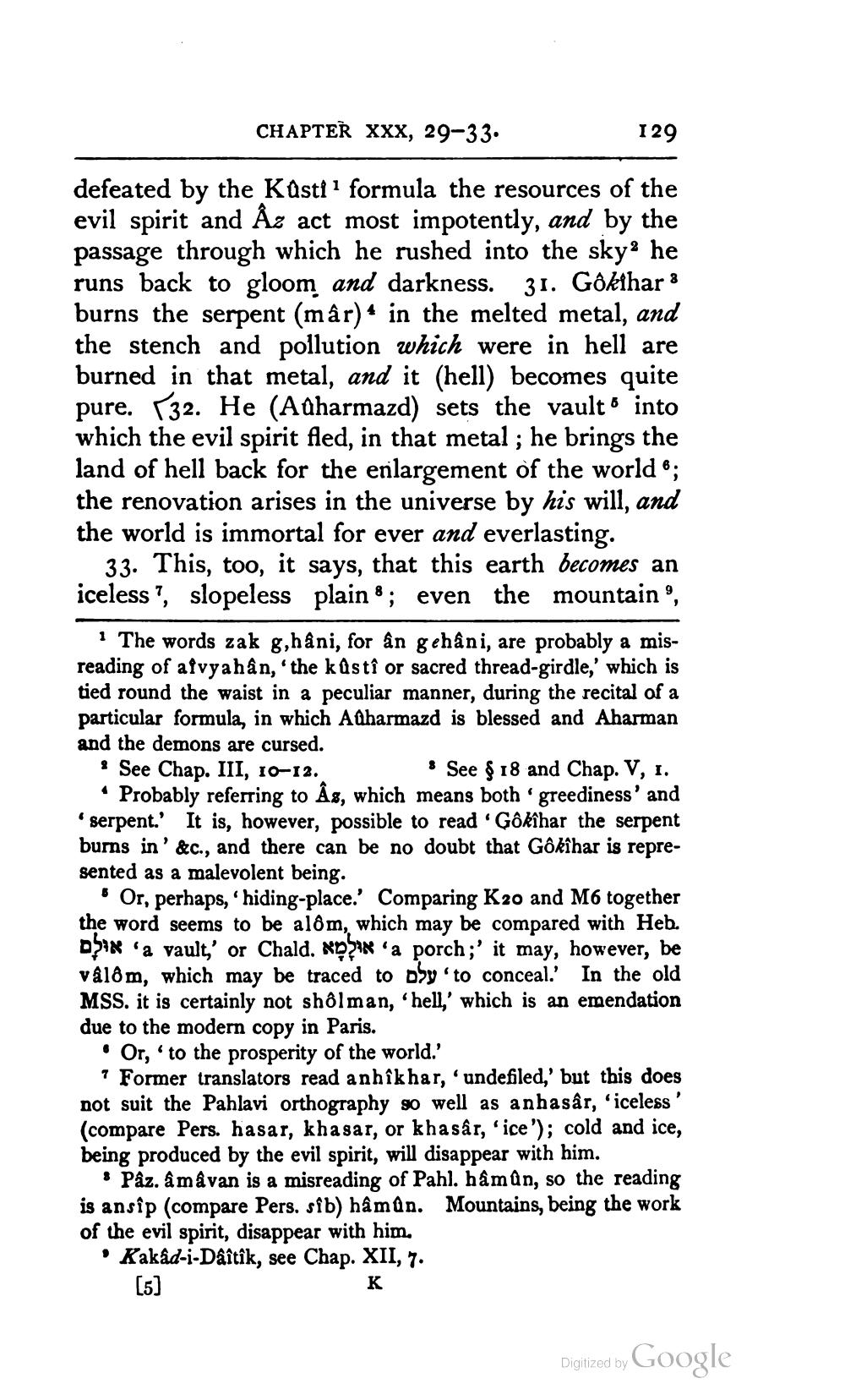________________
CHAPTER XXX, 29–33.
129
defeated by the Kasti : formula the resources of the evil spirit and Åz act most impotently, and by the passage through which he rushed into the skyo he runs back to gloom and darkness. 31. Gôkihar 3 burns the serpent (mar) * in the melted metal, and the stench and pollution which were in hell are burned in that metal, and it (hell) becomes quite pure. 132. He (Adharmazd) sets the vault o into which the evil spirit fled, in that metal ; he brings the land of hell back for the enlargement of the world ®; the renovation arises in the universe by his will, and the world is immortal for ever and everlasting.
33. This, too, it says, that this earth becomes an iceless?, slopeless plain 8 ; even the mountaino,
1 The words zak g, håni, for an gehầni, are probably a misreading of afvyahân, 'the kûstî or sacred thread-girdle,' which is tied round the waist in a peculiar manner, during the recital of a particular formula, in which Adharmazd is blessed and Aharman and the demons are cursed. * See Chap. III, 10–12.
See § 18 and Chap. V, 1. • Probably referring to Âs, which means both greediness' and serpent.' It is, however, possible to read 'Gôkîhar the serpent bums in '&c., and there can be no doubt that Gôkîhar is represented as a malevolent being.
o Or, perhaps,'hiding-place.' Comparing K20 and M6 together the word seems to be alôm, which may be compared with Heb. DX 'a vault' or Chald. xp 'a porch;' it may, however, be valom, which may be traced to oby'to conceal. In the old MSS. it is certainly not shồlman, 'hell,' which is an emendation due to the modern copy in Paris.
• Or, 'to the prosperity of the world.'
? Former translators read anhîkhar, 'undefiled,' but this does not suit the Pahlavi orthography so well as anhasâr, 'iceless' (compare Pers. hasar, khasar, or kha sâr, 'ice'); cold and ice, being produced by the evil spirit, will disappear with him.
* Påz. âmâvan is a misreading of Pahl. hâmûn, so the reading is ansîp (compare Pers. sîb) hâmûn. Mountains, being the work of the evil spirit, disappear with him.
• Kakâd-i-Dâîtîk, see Chap. XII, 7.
(5)
K
Digitized by Google




